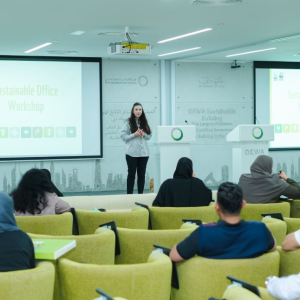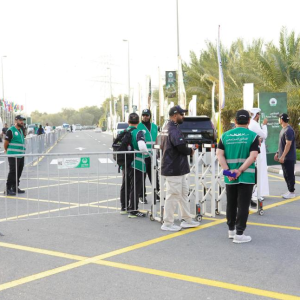UAE Renewable Energy is reshaping the nation’s future and positioning it as a global leader in sustainability. While the UAE is widely known for its oil and gas sector, the country has taken bold steps to diversify its energy sources. Today, solar power, nuclear energy, and innovative green technologies are not only reducing carbon emissions but also inspiring the world to rethink energy production.
Visionary Goals Driving UAE Renewable Energy
The UAE government has set ambitious targets to ensure sustainable growth. The UAE Energy Strategy 2050 aims to produce 50% of the nation’s energy from clean sources. This initiative is part of a broader plan to reduce reliance on fossil fuels and minimize environmental impact. By combining policy, investment, and innovation, the UAE has created a strong foundation for renewable energy development.
- Investment in Solar Power: The UAE’s desert landscape is ideal for solar energy. Projects like the Mohammed bin Rashid Al Maktoum Solar Park are world-class examples of solar energy infrastructure.
- Nuclear Energy Expansion: The Barakah Nuclear Power Plant is a milestone in reducing carbon emissions and providing reliable clean energy to millions of residents.
- Green Innovation Hubs: Various technology zones and research centers are fostering innovation in energy storage, smart grids, and sustainable construction materials.
Major Renewable Energy Projects in the UAE
The UAE has implemented several high-impact projects that showcase its commitment to clean energy:

- Mohammed bin Rashid Al Maktoum Solar Park: This project is one of the largest single-site solar parks in the world. It combines photovoltaic and concentrated solar power to produce over 5,000 MW by 2030.
- Barakah Nuclear Energy Plant: The plant contributes up to 25% of the UAE’s energy needs with zero carbon emissions, making it a benchmark for nuclear energy in the region.
- Shams 1 Solar Power Plant: Located in Abu Dhabi, this project has a capacity of 100 MW, supplying energy to thousands of homes while reducing carbon emissions.
- Masdar City: This sustainable urban project incorporates renewable energy, water recycling, and green architecture to demonstrate practical applications of clean technology.
Innovation and Research Driving UAE Renewable Energy
Innovation is a key pillar of the UAE’s renewable energy strategy. The government invests heavily in research and development, ensuring that the latest technologies are adapted for the unique environmental conditions of the region.
- Energy Storage Solutions: Efficient batteries and smart grids help manage solar and wind energy fluctuations.
- Desalination with Renewable Energy: Combining solar energy with water desalination reduces the carbon footprint of freshwater production.
- Sustainable Transportation: Electric vehicles, solar-powered buses, and hydrogen fuel initiatives are integrated into urban planning.
Environmental and Economic Impact
UAE Renewable Energy efforts have both environmental and economic benefits.

- Reducing Carbon Footprint: Renewable projects are significantly decreasing greenhouse gas emissions and contributing to global climate goals.
- Job Creation: Investments in clean energy create thousands of high-skilled jobs, ranging from engineers to research scientists.
- Global Leadership: By leading in renewable energy adoption, the UAE is setting a standard for other countries, especially in the Middle East and North Africa.

Challenges and Strategic Solutions
While progress is impressive, the UAE faces several challenges in renewable energy development:
- Extreme Climate: High temperatures can affect the efficiency of solar panels and energy storage systems.
- Infrastructure Investment: Building large-scale renewable facilities requires significant upfront costs.
- Energy Transition Management: Balancing the transition from fossil fuels to clean energy without disrupting economic stability.
The UAE has addressed these challenges by leveraging technology, forming international partnerships, and creating long-term policy frameworks. Collaboration with global energy companies and research institutions ensures knowledge sharing and best practices.
UAE Renewable Energy in a Global Context
Globally, the UAE is recognized for its proactive stance in renewable energy. International organizations, climate forums, and sustainability indices consistently highlight the country’s achievements. By exporting knowledge, technology, and investment models, the UAE influences renewable energy adoption worldwide.
The Future of UAE Renewable Energy
The UAE continues to innovate, with futuristic projects on the horizon:
- Hydrogen Fuel Development: Using renewable energy to produce green hydrogen for industrial applications.
- Advanced Solar Technologies: Next-generation solar panels with higher efficiency and durability.
- Smart Cities Expansion: Cities designed around renewable energy, sustainability, and reduced environmental impact.
With these initiatives, the UAE not only secures its energy future but also contributes meaningfully to global climate action.
Conclusion
UAE Renewable Energy initiatives demonstrate how a nation traditionally associated with oil can transform into a global leader in sustainability. By investing in solar, nuclear, and green technologies, the UAE is reducing carbon emissions, promoting innovation, and setting an example for other nations. As renewable energy continues to evolve, the UAE stands at the forefront, proving that economic growth and environmental responsibility can go hand in hand.
Do follow UAE Stories on Instagram












